
Part 2 MARK STATMAN: MEXICO AND THE POETRY OF GRIEF AND CELEBRATION
Part 2 of my interview with Mark Statman looks closely at Mark’s Latin American poetic influences, his life in Mexico and ends with an extract
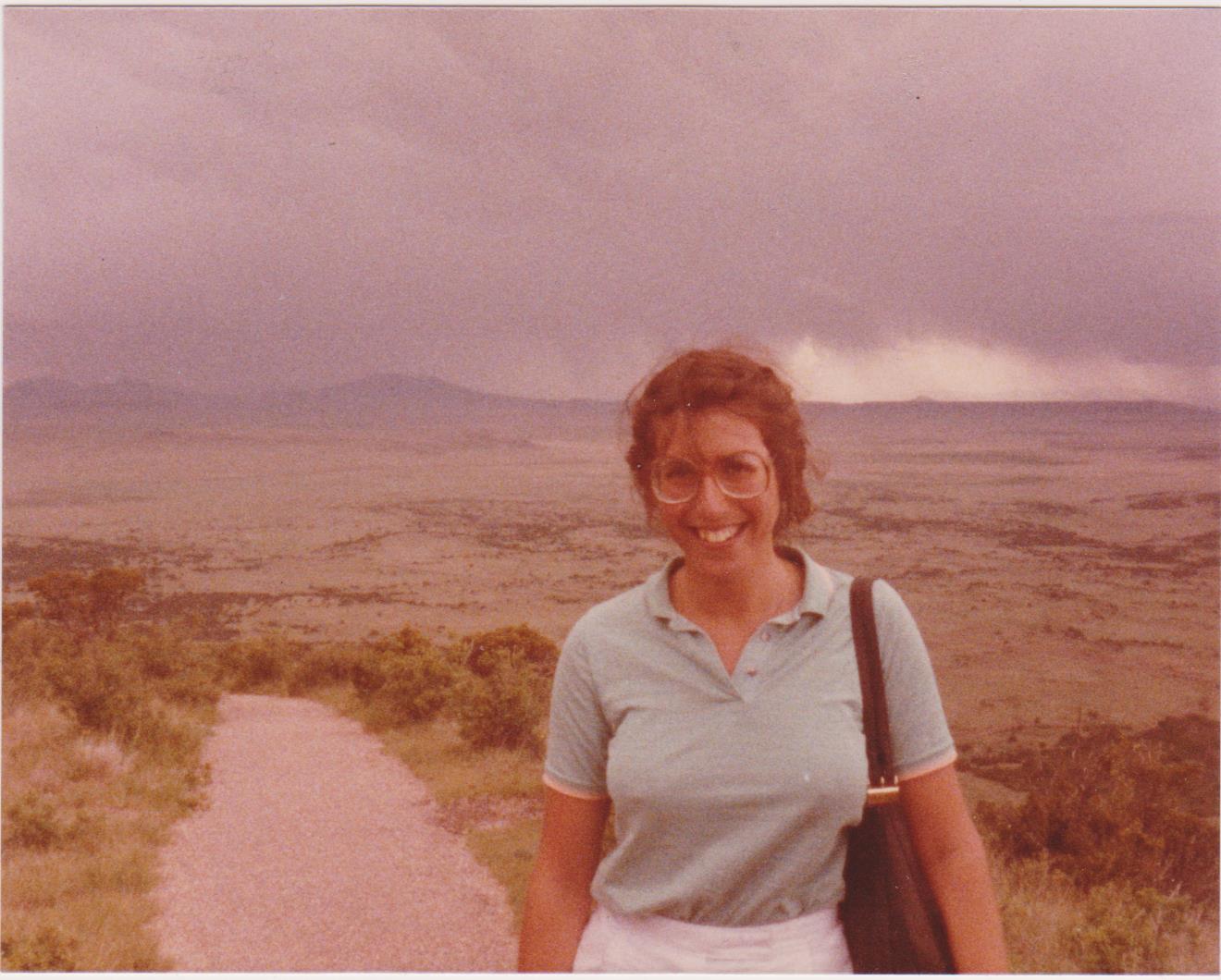
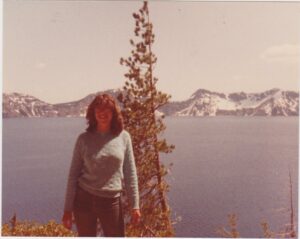
Maxine Lipner interviewed about her professional writing life and how her beliefs were turned upside down by a friend’s uncanny pre-death predictions… For 30 years, Maxine has successfully written features, profiles, interviews and health and business pieces. Combining ghostwriting for doctors with commercial pieces, her fields have been largely scientific and rational. All this changed when Maxine set out to write a memoir entitled Mystic Days in the Ivy: What my Psychic Friend Shared About the Future Beyond Her Own Death.
Leslie: Who have been your most interesting interviewees? Why them?
Maxine: One profile for an in-flight magazine (Northwest Airlines) that I particularly enjoyed working on involved the story of Ben and Jerry’s ice cream a brand known for the their ‘caring capitalism’. For the article, I got the inside story from the founders about how these childhood friends went on to make their mark initially in Vermont and then well beyond, all while keeping their employees’ well-being and the public at large top-of-mind. In this particular piece, I was heartened by Ben and Jerry’s humanity and their ability to evolve business so that it also helped others in the process.
I also had the opportunity to interview renowned tennis player Michael Chang who stunned the world, fighting off cramps and dehydration to ultimately beat Ivan Lendl at the French Open. This was someone who had to reach deep into his soul for the win. He then went on to beat Stefan Edberg and to become the youngest champion of a grand-slam event at the time. During the interview, Chang shared his thoughts on the role his family played in his career and the impact it had on the Asian-American community. As someone who has been a life-long tennis enthusiast, I found the interview with Chang inspiring and is one I will not soon forget.
Leslie: You have written a lot about health, business and science. What have been your most interesting/notable projects in the past? What did you learn from them?
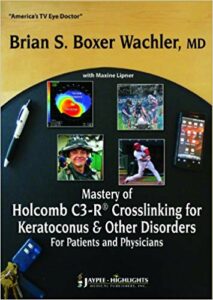 Maxine: So far, one of my most notable projects has been ghostwriting a book entitled Mastery of Holcomb C3-R Crosslinking for Keratoconus and Other Disorders for Patients and Physicians that dealt with a unique eye treatment that allowed Olympic bobsled pilot Steve Holcomb to remain in the sport. After receiving this non-invasive crosslinking treatment, Holcomb brought the US its first gold medal in bobsledding in 62 years. In undertaking the book, I not only learned a lot about the procedure for the eye-condition keratoconus, but also about the persistence needed to complete a long-term project such as this.
Maxine: So far, one of my most notable projects has been ghostwriting a book entitled Mastery of Holcomb C3-R Crosslinking for Keratoconus and Other Disorders for Patients and Physicians that dealt with a unique eye treatment that allowed Olympic bobsled pilot Steve Holcomb to remain in the sport. After receiving this non-invasive crosslinking treatment, Holcomb brought the US its first gold medal in bobsledding in 62 years. In undertaking the book, I not only learned a lot about the procedure for the eye-condition keratoconus, but also about the persistence needed to complete a long-term project such as this.
This ghostwriting project was actually an outgrowth of my continued role of writing about ophthalmology for a trade publication, for whom I’ve written more than 1000 articles, steeping me in this medical world.
Leslie: What are the key steps involved in ghost-writing for scientists? What skills does it draw upon?
Maxine: I find that ghost-writing for scientists comes down to asking the right questions, listening intently and accurately conveying this. In my experience, this means really becoming familiar with the subject matter ahead of time and yet not being afraid to say when you yourself are unclear about something.
Leslie: What have been the least rewarding sides of your job as a writer? What have you learned from these tasks?
Maxine: Hands down the most tedious part of my work can be the transcribing. Particularly when my interviews are quite technical, I want to ensure that I am being accurate, which means taking down every word, usually highlighting what’s important and only then getting into the writing process. The upside is I do become much more familiar with the material in going through this exercise.
Leslie: More recently, as a rational, science-based thinker, you’ve been working on a project that has challenged your core beliefs. Can you describe your latest project and its effect on you, please?
Maxine: My latest project, a memoir entitled Mystic Days in the Ivy: What my Psychic Friend Shared About the Future Beyond Her Own Death is one that has changed my whole worldview. It involves my best friend from my days at Cornell, Anne, who early on informed me that she, ‘knew things about her life’. Throughout our days together at Cornell she made it her mission to share a host of things that she knew about the future with me, including that something major was one day going to take place at the World Trade Center. I, for my part, was someone who was raised to believe in things you measure, weigh and prove.
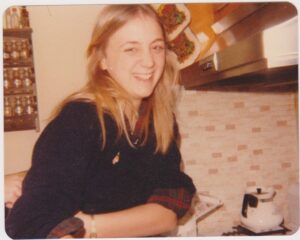
Among other things, Anne shared with me that she would not be alive for very long. This struck me as unknowable and I viewed this as a fearful twist of her imagination, pointing out that she was healthy and her older relatives seemed to be in good shape. She also informed me that one day after she was gone, her college boyfriend would reach out to me to try to find out what happened to her and that neither one of us would be in touch with her at the time. She even gave to me a message to relay to him when the time came. Sure enough, I found out about her death from a Cornell website and a while later her boyfriend, who found out the same way, reached out to me just as she told me he would. We then together worked to find out what happened to her.
At first, I kept thinking that there had to be a logical explanation for her many psychic calls – that the fact that she was right was mere coincidence. But as I went along and more of Anne’s predictions proved true, it became clear that she really did know what she was talking about. I then found myself looking for spiritual answers learning about things like the Akashic records, which I have come to think about as a spiritual library. This ultimately took me from atheistic place to one in which I began to view the world as one involving a magic that science cannot explain, where answers could lie in other planes that only the soul could reach.
Leslie: In what ways have your day-to-day perceptions and encounters been changed by seeing a spiritual/mystic side to life?
Maxine: These days, I feel as if I have a secret that I want to share with others, particularly those who are struggling with a terminal illness or the loss of a loved one. I want to let them in on the experiences that I’ve had and how this could only be possible if there was something more to life than what can be seen under a microscope. In my own life, I find I no longer take a black-and-white view on things. It is my belief that we are all here to learn and I try to give people a wider berth on things as a result and do my best not to be as quick to judge how others behave.
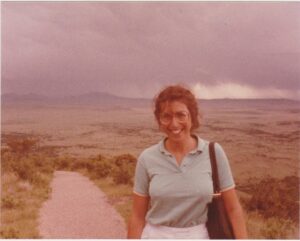
Leslie: ‘Doubt and uncertainty are at the heart of spiritual life.’ What would you say are the similarities and the differences between a scientific and a spiritual viewpoint, please?
Maxine: One of the similarities between a scientific and a spiritual viewpoint is the idea of questioning the world and our place in it. With science we can use our questions to understand certain diseases and thereby extend our lives. Likewise, with spirituality we can question, for example, what happens after death.
With science, such questions can lead to external studies that can elucidate clear answers about a largely visible world. Meanwhile, with spirituality, such questions can lead to internal soul-searching of a non-visible realm.
There are, of course, distinct differences as well. With scientific principles, it is possible to gather facts, lay these out and come to a provable conclusion. However, with a spiritual viewpoint, things are unprovable from a physical perspective. For example, while I can stack up Anne’s many premonitions that came true and come to a conclusion about the spiritual nature of life that I know in my soul are correct, there’s no equation I can point to or instrument measurement I can show that can unequivocally proves to others that I am correct. It all ultimately comes down to belief.
Next week Cambridge-based participatory artist Hilary Cox Condron talks about getting people involved in creating radical art.
ABOUT LESLIE TATE’S BOOKS:

Part 2 of my interview with Mark Statman looks closely at Mark’s Latin American poetic influences, his life in Mexico and ends with an extract

I interviewed international poet and translator Mark Statman about Volverse/Volver, his 14th published collection. Mark, who has won national arts awards, is Emeritus Professor of Literary

I interviewed Lisa Dart, finalist in the Grolier, Aesthetica and Troubadour Poetry Prizes and author of The Linguistics of Light (poems, Salt, 2008), Fathom (prose

I interviewed writer Julia Lee Barclay-Morton about her experience of autism. Julia began as an experimental dramatist in New York, moving to the UK to

I interviewed Gillean McDougall from Glasgow, who edited the collaborative projects Honest Error (on Charles Rennie Mackintosh and his wife Margaret Macdonald) and Writing the
| Cookie | Duration | Description |
|---|---|---|
| cookielawinfo-checkbox-analytics | 11 months | This cookie is set by GDPR Cookie Consent plugin. The cookie is used to store the user consent for the cookies in the category "Analytics". |
| cookielawinfo-checkbox-functional | 11 months | The cookie is set by GDPR cookie consent to record the user consent for the cookies in the category "Functional". |
| cookielawinfo-checkbox-necessary | 11 months | This cookie is set by GDPR Cookie Consent plugin. The cookies is used to store the user consent for the cookies in the category "Necessary". |
| cookielawinfo-checkbox-others | 11 months | This cookie is set by GDPR Cookie Consent plugin. The cookie is used to store the user consent for the cookies in the category "Other. |
| cookielawinfo-checkbox-performance | 11 months | This cookie is set by GDPR Cookie Consent plugin. The cookie is used to store the user consent for the cookies in the category "Performance". |
| viewed_cookie_policy | 11 months | The cookie is set by the GDPR Cookie Consent plugin and is used to store whether or not user has consented to the use of cookies. It does not store any personal data. |
5 responses
Fascinating; I think lots of people, me included, ‘know ‘ what is going to happen; who is at the other end of the phone when it rings or you are going to marry someone you just met! But I have never encountered someone like Anne. Some people are far more perceptive than others, the universe gets vaster and we understand it less every year, so it would be strange if life wasn’t beyond our understanding!
I couldn’t agree more, Janet. Thank you!
Thanks Janet! I also couldn’t agree more! I think we all may have a bit of “Anne” in us. However, for someone like me it might take someone like her to allow me to ultimately acknowledge this! Glad you enjoyed reading about this!
Beautiful post. Thank you, Leslie and Janet.
🙂 🙂 🙂